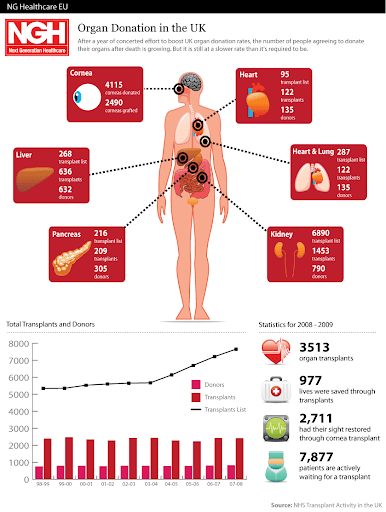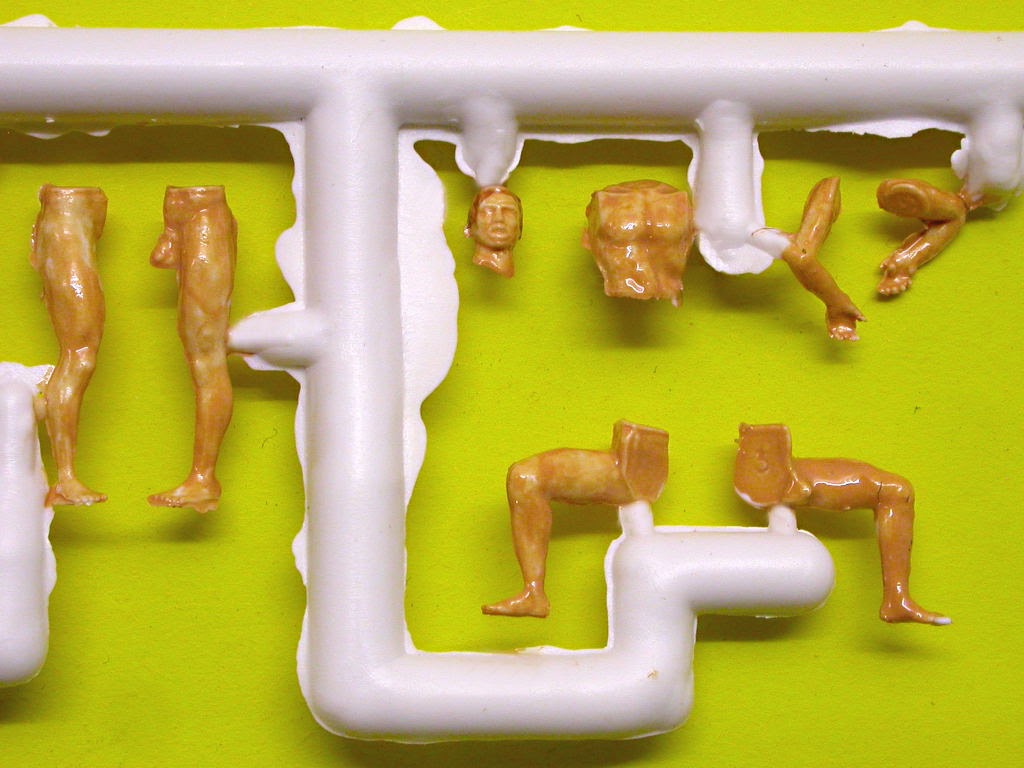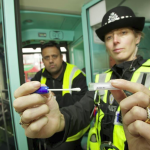“Helping others” is something a lot of people aim for, take pride in and get satisfaction from. There are so many projects that you can get involved in, you could start volunteering or donating to a specific organisation. It is exactly at this point where it is crucial to talk about how each and every one of us, through a single donation, could give another person a second chance at life. To be exact, one person could possibly save up to 8 lives and enhance 75 more. Living organ donors can donate a kidney, lung, as well as a portion of their liver, pancreas, and intestine. Deceased organ donors can give two kidneys, two lungs, heart, pancreas and intestines. Corneas, tissues, hands and face, blood stem cells, cord blood, bone marrow, blood and platelets can also be donated.
Organ donations through deceased persons has sparked much controversy. Each country has developed their own approach on this matter based on an opt-out or opt-in concept, trying to boost organ donations in the presence of ever growing waiting lists.
Opt-in or opt-out?
Countries, such as Germany, Sweden, and Brazil are using an opt-in system, relying on their citizens actively signing up for organ donations, This, however, can lead to individuals who would want to be a donor not donating (a false negative). Opt-out countries, for instance Sweden, Russia and Uruguay, consider all citizens to have agreed to be an organ donor, even though this can potentially lead to an individual who does not want to donate becoming a donor (a false positive). Every day various organs get harvested and planted, yet the waiting list is growing exponentially compared to the people donating organs, and every day people die waiting for a life saving organ.
A study by the University of Nottingham found that an opt-out system had a higher total number of kidneys, the organ with the longest waiting list, transplanted and a higher quantity of organ transplants in general. However, as mentioned above, organs do not always stem from deceased donors. And living donations are higher in opt-in countries.
This study may have impacted countries, mostly European, to make changes in their system. For instance, England changed to an opt-out system this March. In either system, family members still have the final word, and can even override their relatives’ decision to donate.

Getting personal
It may surprise you then that Sweden, an opt-out country, has one of the lowest organ donation rates in Europe. It is Spain, who has the highest organ donation rate in the world. Apart from utilizing opt-out consent, their success is based on measures such as a transplant coordination network that works both locally and nationally, a high quality of public information available about organ donation, and a focus on reaching out early to families of potential donors. Just by talking to relatives for 3-4 hours chances of organ donation triple.
When organs are rejected
Another problem is the lack of surgeons who are able to remove organs or tissue for donation. For instance, in the US, Roland Henry, a previously healthy person until the car crash, wanted his organs to be recovered and donated, yet t local organ collecting agency denied his wish. This is one of many examples where governments all around the world are letting usable organs go to waste due to a lack of communication within the different organ agencies, gaps in the medical system and a lack of overview and reporting.
Organ tourism and organ trafficking
These gaps in efficiency, when it comes to harvesting organs, are extremely dangerous to people on both sides of the spectrum. On the one hand, people on the waiting lists are dying, on the other hand organ donors are being exploited to the extent of death as well. An example of the latter can be found in the Indian state Tamil Nadu, where three out of four harvested hearts went to foreigners, mostly wealthy citizens of Western countries. And whilst the Transplant Authorityclaims that organs are only given to foreigners when there are no Indian citizens on the waiting list, it is difficult to overlook that the main obstacle for Indians seems to be to register and pay the necessary fees. Of course, Tamil Nadu is only a single center, yet it it is part of an overall problem.
The lack of organs and possibilities to pay high prices also leads to the phenomenon of organ trafficking. As of 2008, the WHO estimated every tenth kidney to derive from international organ trafficking, a business worth approximately 5 billion US dollars. There are stories of people selling essential and non-essential organs to pay debts, or to help their families. Moreover, they are difficult to confirm. As for the buyers, they are mostly sick and vulnerable citizens from the US, Western Europe, the Arab Gulf states, Israel and wealthy enclaves in the developing world.
As mentioned, particularly in Europe, states have been trying to combat waiting times, and with that organ trafficking and organ tourism, by boosting organ donations through opt-in and opt-out systems. In other countries, already a new medical definition of “death” could boost organ donation.
Brain death and cardiac death
Cardiac death, is typically defined as the moment when the heart has stopped beating or is beating too irregularly to sustain life. Brain death is the cessation of all brain activity, including all of the activity in the brain stem. Hence, with advanced technology, such as ventilators, the central body system (heart and lungs) can still keep the body running, whilst the person itself is no longer sentient. Therefore, in countries, such as Japan, Pakistan and Romania, brain death is not accepted by society and, often times, the medical sector. And this is a real struggle when it comes to deceased organ donation.
Here, in Sweden, brain death is seen as equal to cardiac death. Therefore, in the case of deceased organ donation, turning of the ventilator is not noted as the official moment of death, instead the date of the diagnosed brain death is registered.
Organ donation is something very personal, and maybe therefore still not talked about enough. It is important to speak to your family and friends about this subject and ask yourself the question of whether or not you want sign up for donation, stay the system, ot opt out.
by Julia Glatthaar
Photo Credits
Organ donation, GDS Infographics, CC BY 2.0
Organ trafficking, Glacomo Salicconi, CC BY 2.0










